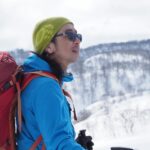【Deep Dive Chronicle】Central Buttress of Ichinokura-sawa: A Day After the Exam, Onto the Wall
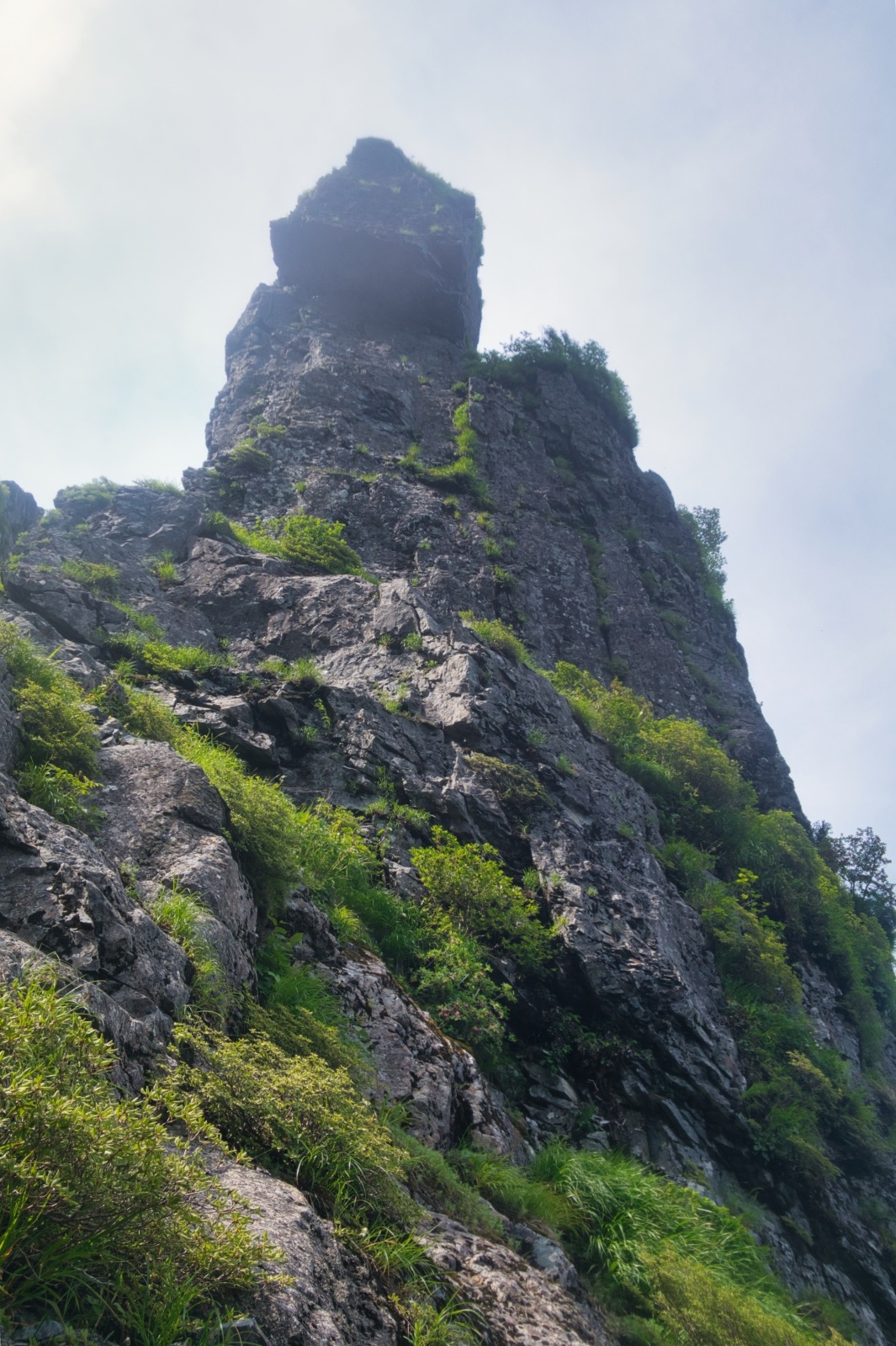
June at Mt. Tanigawa, Ichinokura-sawa. On a morning when the tension from my exam still lingered in my hands, K and I stood gazing up at the Central Buttress (Chūō Kante). A single day of clear weather between the rainy season spells illuminated our fleeting freedom. With each touch of rock, I felt the shadows of everyday life receding.
目次
Part One – The Day After the Exam
Saturday, June 17th. As I left the national examination venue, the sky was cloudless and brilliant. The forecast for the next day was flawless. We couldn’t let this opportunity slip away.
Busy with exam preparation, I had left even the planning documents to K. Despite the short notice, he readily agreed. The exam results came back perfect on the preliminary scoring. Now I could head to the mountains with a clear conscience.
At 10 PM, I met up with K locally. We parked at the Information Center parking lot and pitched our tent.
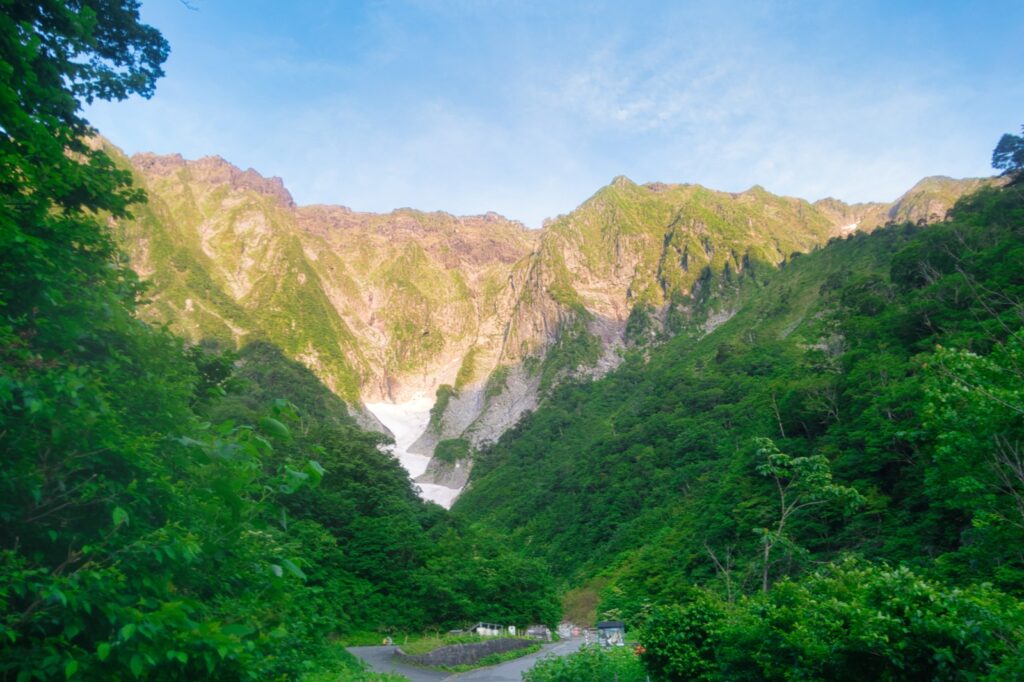
The next morning, I woke at 3:30 AM. We departed at 4:00, driving through the dim roads and reaching the Ichinokura-sawa confluence by 5:00. For June, the snow fields were surprisingly scarce. We took the approach trail. At a point where we could access the snow field, we started the approach, and it became a snow field walk to the base of the Tail Ridge.
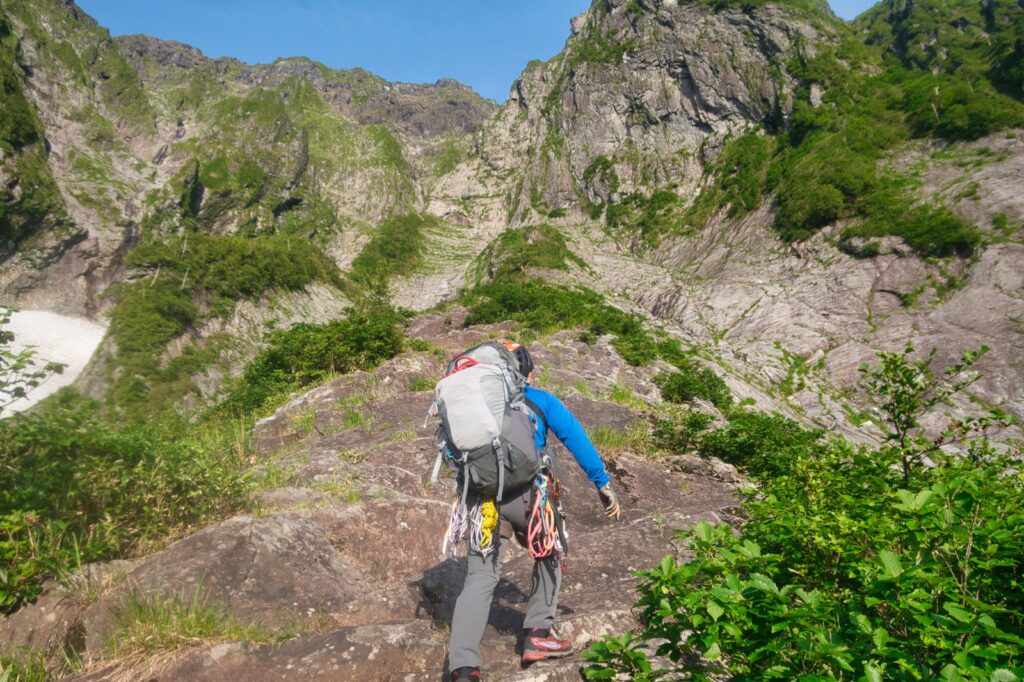
Around 7:30, we passed Tsuitate-iwa (Shield Rock) and arrived at the base of the Central Buttress. A climber from another party said:
“I heard there was a fall accident on the Central Buttress yesterday.”
For a moment, the air grew heavy. But having come this far, we couldn’t turn back. We yielded to parties arriving after us and prepared our gear.
Though the weather was clear, temperatures were high. We carried one more bottle of water than usual. K would lead the odd-numbered pitches, and I would take the evens. At 7:44 AM, K started on the first pitch.
Part Two – Ascending the Wall
Pitch 1, Grade III+, 40 meters. K traversed then moved onto the face. His movements were stiff. I fumbled with the radio operation—we hadn’t found our rhythm yet. Following, I found the traverse frightening. The face was wet, probably remnants from yesterday’s rain. I placed my feet carefully, testing each hold as I climbed.
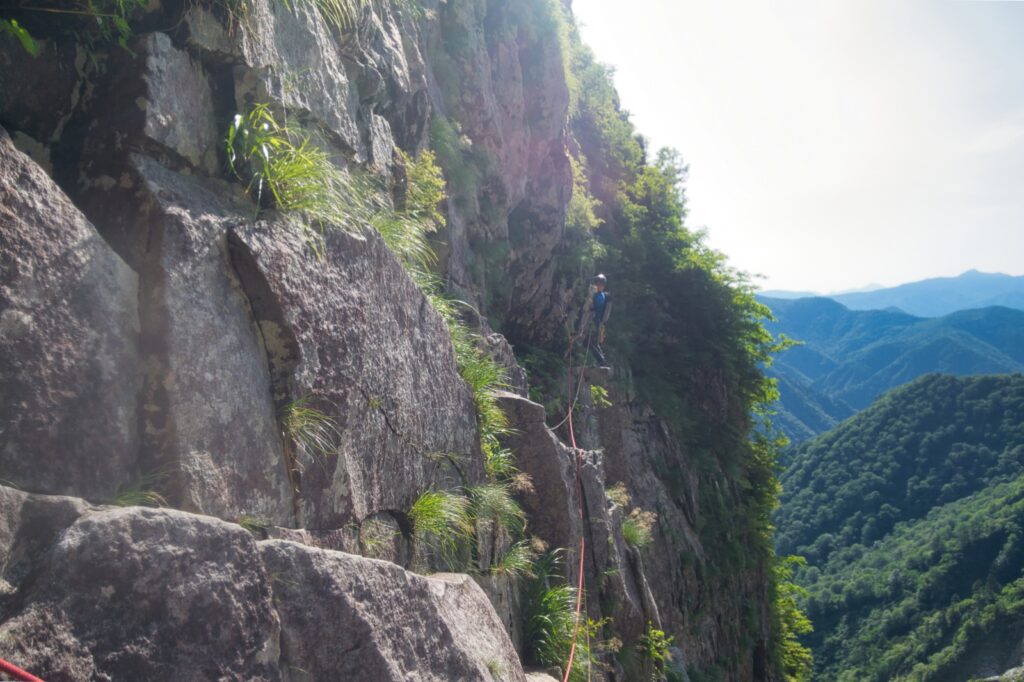
Pitch 2, Grade III, 50 meters. I climbed the gentle face and diverged from the concave route. Here we entered the direct ascent route of the Central Buttress. Finding no existing protection, I used thin shrubs for intermediate anchors.
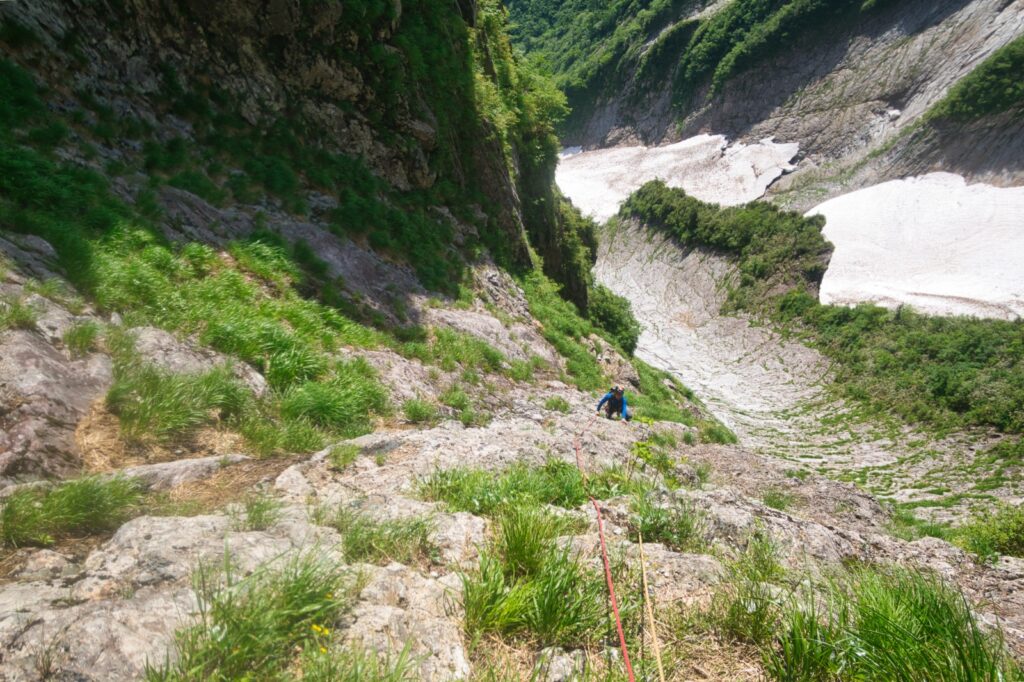
Pitch 3, Grade IV, 40 meters. From a band onto the buttress. Not difficult, but once again I had no choice but to use thin shrubs for intermediate protection.
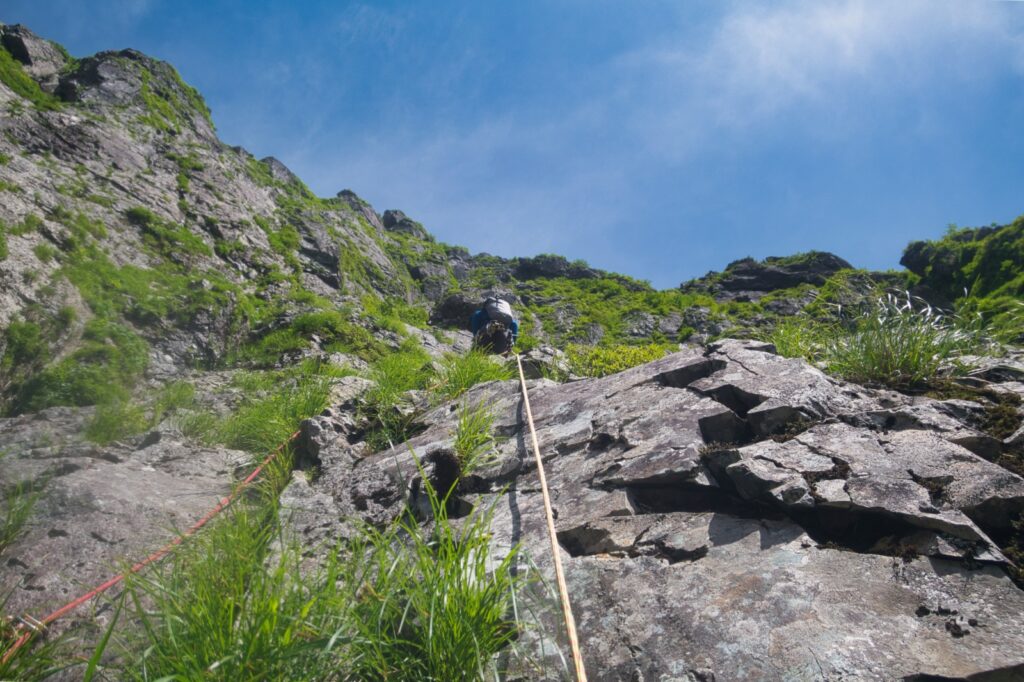
Pitch 4, Grade III, 50 meters. That buttress clearly visible from the South Ridge terrace. A comfortable pitch with pitons dotting the rock wall. I climbed using these at key points for anchors.
Pitch 5, Grade IV, 30 meters. From a couloir (runze) into a chimney.
“It’s wet and my shoes are slipping!”
Granite becomes treacherous when wet. The wet couloir interior was hammered with pitons. The tension was palpable. It took time.
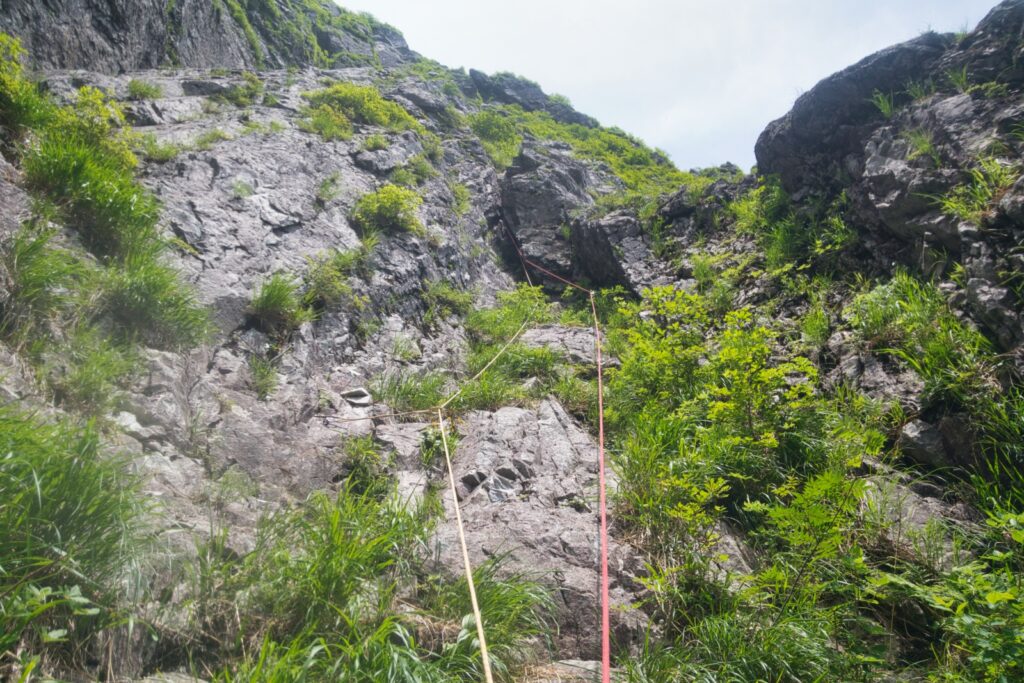
Pitch 6, Grade III, 40 meters. Face climbing upward-left, then traversing right along a band. The rock was friable. The moment I grabbed a hold, rock peeled away. My heart leaped. I proceeded with extreme caution.
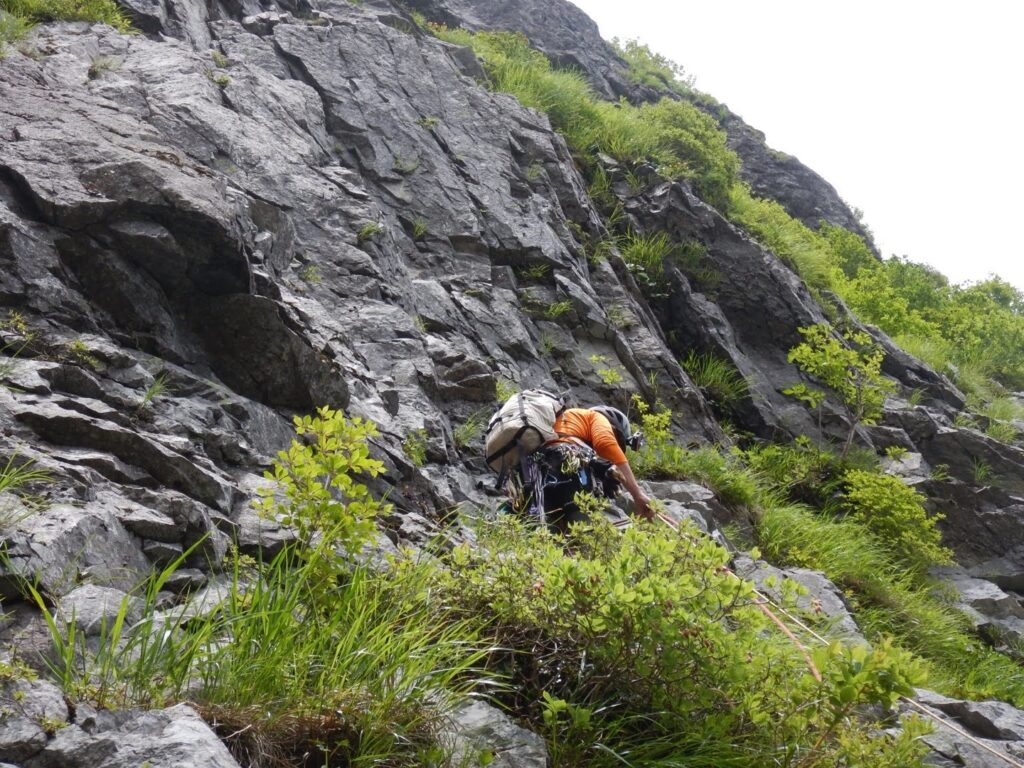
Pitch 7, Grade V, 30 meters. The crux section. A face and corner crack. Movement was deliberate. Slippery, with fine holds. Still, K free-climbed through it. At the crux, I didn’t hesitate to aid climb (A0).
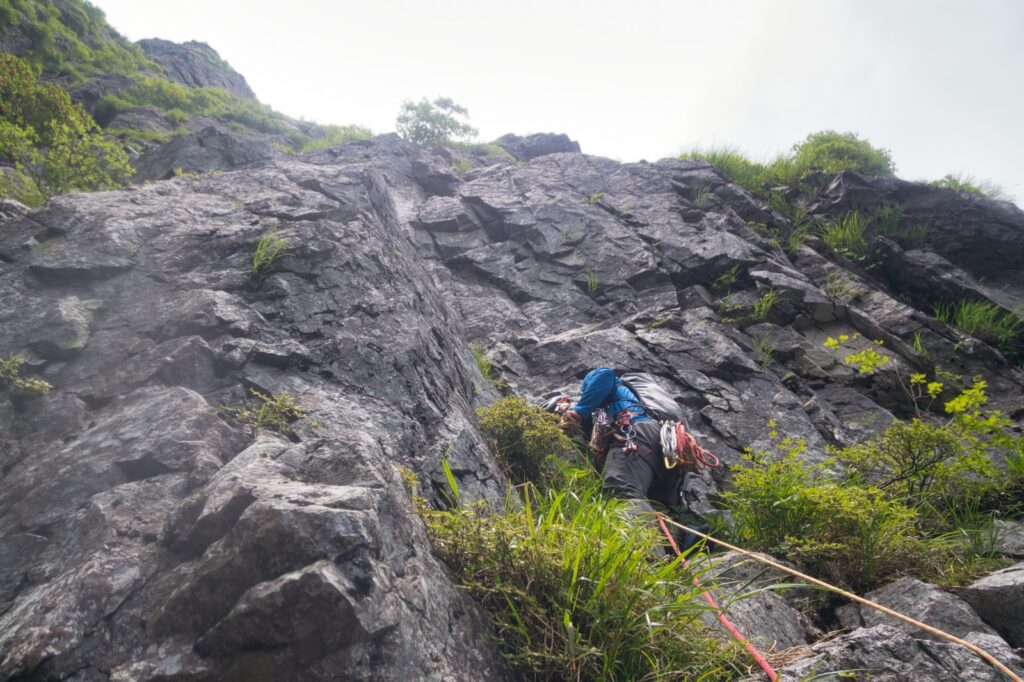
Pitch 8, Grade IV, 30 meters. Slab climbing upward-left, then into a couloir-like section. Surprisingly poor conditions. The belay station was on a narrow terrace.
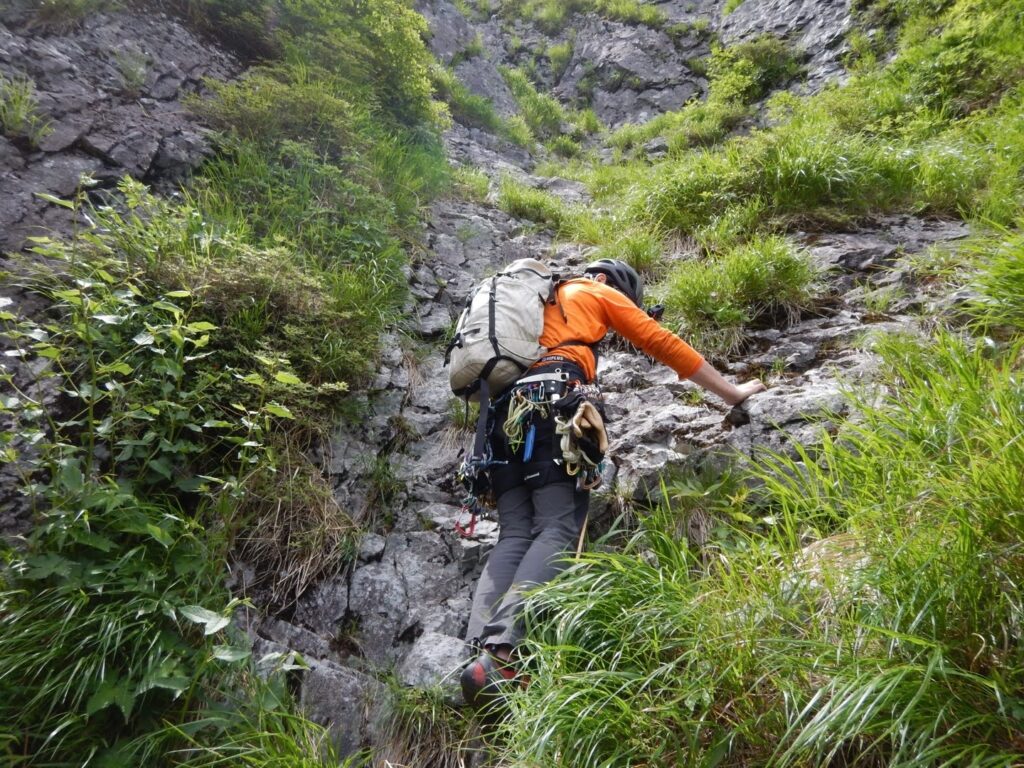
Pitch 9, the final pitch, led by K. Grade III, 40 meters. From a grassy concave section onto the face.
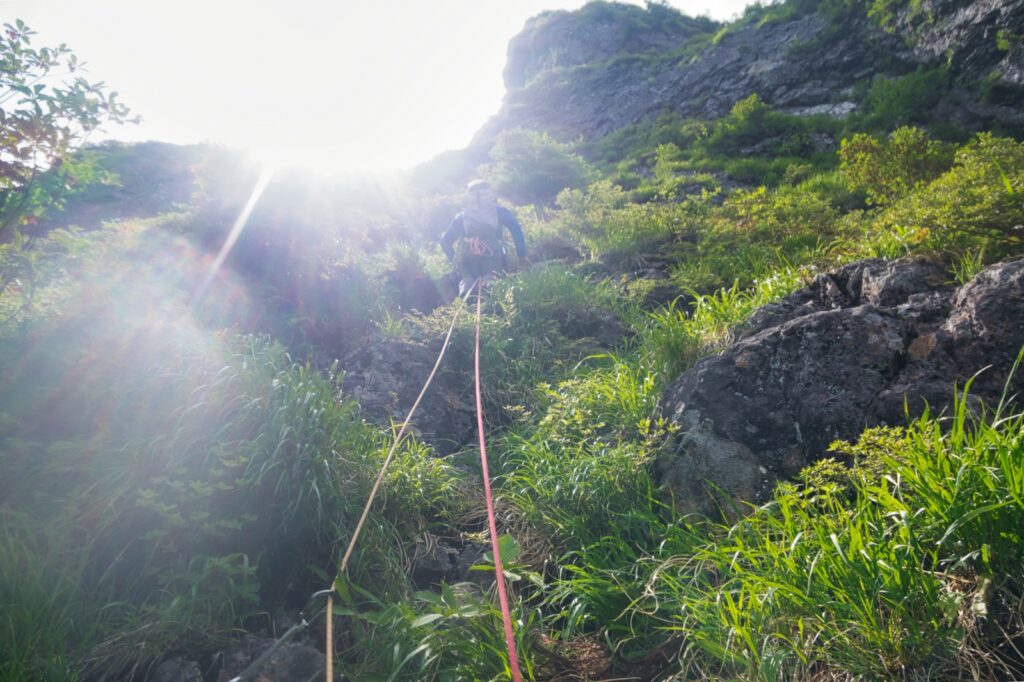
The line seemed different from the topo illustration. Instead of going straight up, we moved upward-left. Perhaps because the route differed, the face was far worse than Grade III suggested.
At 9:55 AM, we reached the rappel point with massive amounts of abandoned cord. The climb was complete. Relief flooded through me.
Part Three – Descent, and Then
From the Eboshi no Kata (Hood Shoulder), we began the free-hanging rappel. As my body floated in space, a mix of slight fear and liberation crossed through me. After landing, we traversed to the opposite bank along the couloir. Carefully discerning the boundary between grassy sections and brush, we proceeded with careful route-finding.
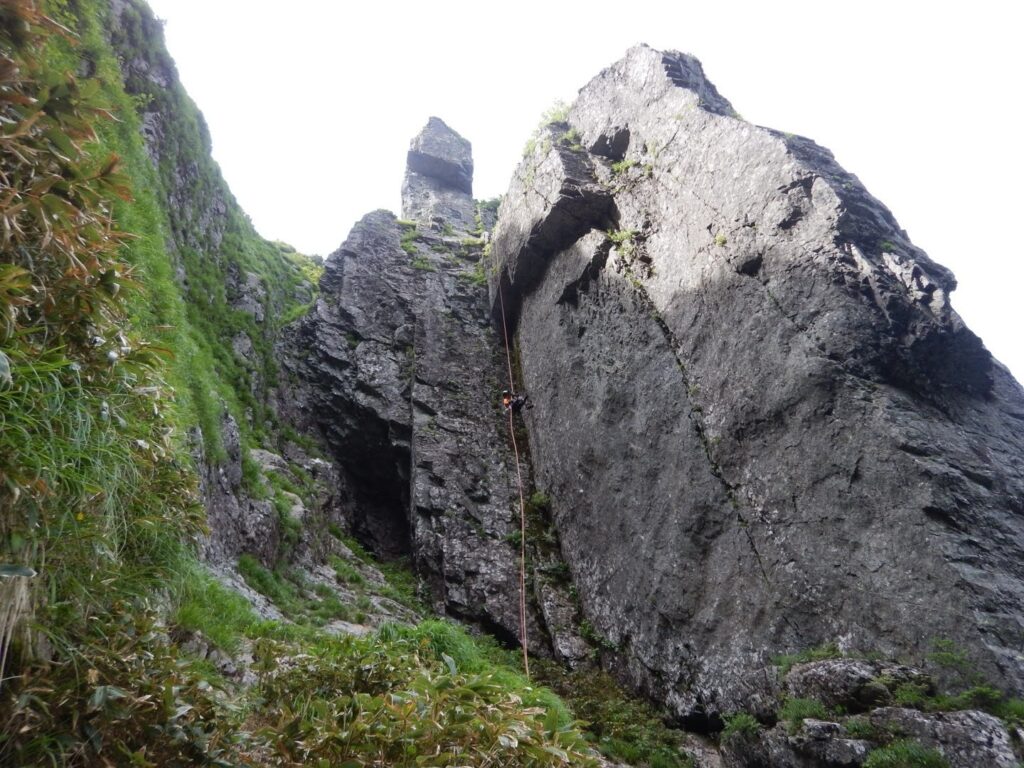
From the Direct Route’s terminus, we moved laterally through trackless brush. Beyond that, at a rock section, we found an anchor point leading from the South Ridge to the border ridge. Descending about five meters from there, we reached the descent point of the sixth couloir.
From there, we repeated rappels as on the South Ridge. When we descended from the South Ridge second pitch terminus to the terrace, trouble struck.
The rope had snagged on a rock horn at the first pitch.
Pulling did nothing. Fatigue seeped into my body as frustration built. It was past 4 PM.
“We’ll have to climb back up.”
Bonus lap on South Ridge pitch one. We re-tied the rope and climbed back up to retrieve the snagged line. About an hour lost.
Finally recovering the rope, we descended again. The last rappel brought us back to the South Ridge terrace. 7:39 PM. The sky was sinking into dusk.
At 7:56 PM, we returned to the Ichinokura-sawa confluence. Switching on headlamps, we walked toward the trailhead. At 9:05 PM, we arrived back at the Information Center parking lot.
We pitched our tent in the same spot as the previous night. Once again, we’d worked overtime.
Inside the tent, K and I laid our exhausted bodies down. Lured by fair weather to challenge the Central Buttress of Ichinokura-sawa. Despite harboring unease over the shadow of an accident, we cleared the crux and worked through the final trouble.
The exam was perfect. This climb, too, ended safely. That was enough.
The Tanigawa night was quiet.
[LOG SUMMARY]
- Date: June 18, 2023 (Sunday)
- Team: 2 members (with K)
- Route: Central Buttress (Chūō Kante), Eboshi-zawa, Ichinokura-sawa, Mt. Tanigawa
- Grade: Grade IV- (with Grade V pitch) – Based on Japanese Alpine Club Standard
- Number of Pitches: 9 pitches
- Weather: Clear skies
- Accommodation: Tent camping at Tanigawa-dake Information Center parking lot
